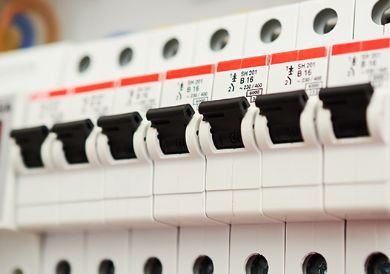Are You at Risk If Your Breaker Keeps Shutting Off?

Circuit breakers are designed to protect your home from electrical overloads, short circuits, and potential fires. When one trips, it’s a sign that the system is doing its job. However, if your breaker keeps shutting off repeatedly, it may be warning you of a deeper, more dangerous issue. This isn’t something to ignore or dismiss as a minor inconvenience. In many cases, frequent breaker trips are a sign that you may be at serious risk. When that happens, the best course of action is to call an emergency electrician to inspect your electrical system.
Why Breakers Trip in the First Place
Understanding why a breaker trips helps you appreciate the importance of resolving the problem. Circuit breakers automatically shut off electrical flow when they detect excess current. This typically happens due to overloaded circuits, short circuits, or ground faults. An overloaded circuit means you’re drawing more power than the circuit can handle. A short circuit or ground fault, on the other hand, is more serious and could potentially cause electrical fires or shocks.
Occasional tripping may not be cause for alarm. However, repeated trips indicate an ongoing issue that could worsen over time. That’s when you need the trained eyes of an emergency electrician to determine whether your home is safe.
Overloaded Circuits and Hidden Dangers
One of the most common reasons for a breaker to trip is an overloaded circuit. You might have too many high-wattage devices plugged into the same circuit—like a microwave, toaster, and coffee maker operating at once. While this seems harmless, continued strain on your wiring can degrade insulation, increase heat buildup, and eventually spark a fire.
If you frequently experience breaker trips in the kitchen, home office, or entertainment area, there’s a good chance your circuits are being pushed beyond capacity. An emergency electrician can assess your layout and determine whether you need additional circuits or an upgraded panel.
Read more: Bending in Sheet Metal: Techniques, Applications, and Challenges
Short Circuits and Fire Hazards
Short circuits happen when a hot wire touches a neutral wire or ground wire. This causes a sudden surge of electricity and leads to immediate breaker trips. Unlike simple overloads, short circuits are a serious hazard. They can generate extreme heat in a fraction of a second and are one of the leading causes of residential electrical fires.
If you smell burning plastic, notice black marks around outlets, or hear buzzing noises, do not ignore them. These are warning signs that something is seriously wrong. Contacting an emergency electrician right away could prevent a catastrophic event.
Ground Faults and Shock Risk
A ground fault occurs when a hot wire touches a grounded part of the electrical system or a conductive surface like a metal appliance. Ground faults can result in serious electric shocks, particularly in areas like bathrooms, kitchens, or outdoors where moisture is present.
If your breaker is tripping in wet areas or around specific appliances, it’s critical to shut off power to the area and call an emergency electrician. They can identify the fault, replace damaged wiring or outlets, and recommend installing Ground Fault Circuit Interrupters (GFCIs) if they are not already in place.
Signs It’s Time to Call an Emergency Electrician
Frequent breaker trips are a major red flag. If your breaker shuts off daily or even multiple times a week, you’re not just dealing with an annoyance—you’re dealing with a warning system. Constantly resetting a breaker without addressing the cause can worsen the problem, increasing the chances of an electrical fire.
Other signs that require urgent professional attention include a burning smell near your breaker panel, humming noises, warm or discolored outlets, or flickering lights. These are all signals that your system may be under stress or malfunctioning. An emergency electrician will safely diagnose the issue and restore proper functioning without putting your home or family at further risk.
Don’t Delay Electrical Repairs
It’s tempting to put off calling a professional, especially if resetting the breaker seems to “solve” the problem for a little while. But the truth is, each time you ignore a tripped breaker, you increase the likelihood of a serious incident. Your breaker is doing its job—alerting you to danger. The real solution lies in identifying and correcting the underlying issue.
An emergency electrician brings the knowledge and tools to thoroughly inspect your wiring, circuits, and panels. They can determine whether your home needs rewiring, a panel upgrade, or redistribution of load across circuits.
Protecting Your Home and Family
Electrical safety should never be left to chance. Your breaker system is your first line of defense against overload, shock, and fire. If it’s tripping repeatedly, it’s time to take that warning seriously. Calling an emergency electrician isn’t overreacting—it’s protecting your family, your home, and your peace of mind.
No one expects an electrical fire until it’s too late. By acting early and trusting a licensed emergency electrician, you can avoid disaster, improve your home’s electrical efficiency, and ensure that your system is up to modern safety standards.
Conclusion
A breaker that keeps shutting off is more than just an inconvenience—it’s a warning. Whether caused by overloaded circuits, short circuits, or ground faults, the risks associated with repeated trips can’t be ignored. Your best defense is immediate action. Don’t wait for signs of smoke or fire. If your breaker keeps tripping, contact a professional emergency electrician right away to inspect, diagnose, and fix the issue. Safety always starts with awareness—and ends with responsible action.





